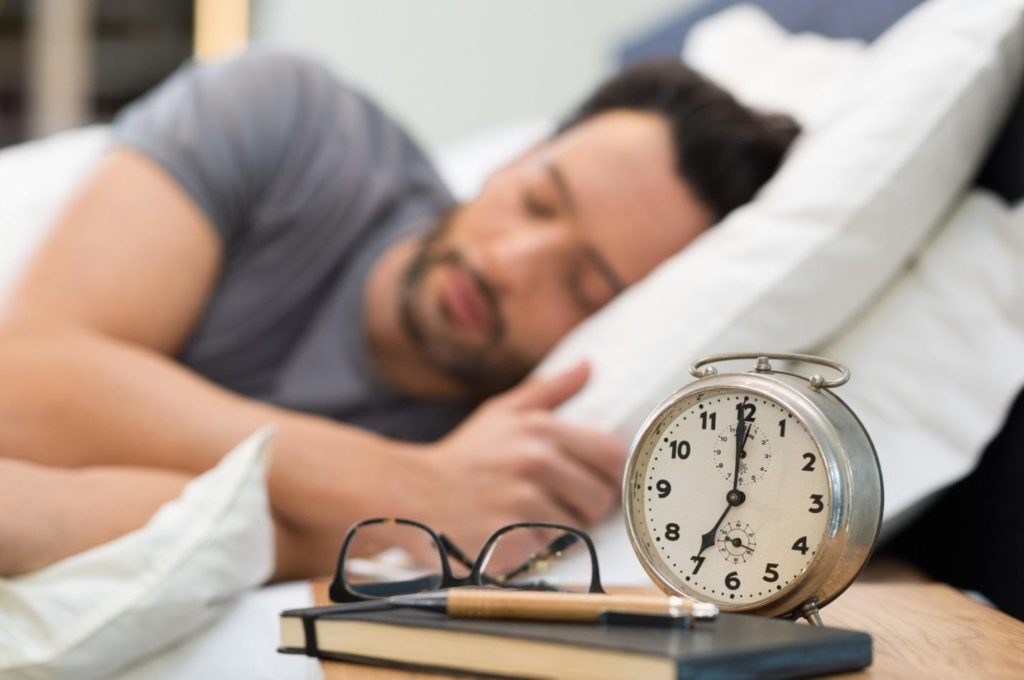Introduction
In the realm of fitness, where sweat and effort often take center stage, the role of rest and recovery is frequently overlooked. Yet, within this spectrum of recovery methods, one aspect stands out for its profound impact on physical and mental well-being: sleep. Delving into the intricacies of sleep and its relationship with fitness unveils a fundamental truth – adequate rest is as crucial as the workout itself.
Understanding Sleep
Sleep, often dismissed as a passive state, is a complex and dynamic process essential for human health and performance. The sleep cycle comprises distinct stages, each characterized by unique brain wave patterns and physiological changes. From the drowsy onset of stage one to the deep, restorative slumber of stage three and four, the journey through sleep is a vital component of the body’s repair and regeneration mechanisms.
Sleep and Physical Performance
Athletes and fitness enthusiasts alike understand the pivotal role sleep plays in optimizing physical performance. Research consistently demonstrates that sleep deprivation compromises athletic abilities, impairing coordination, reaction time, and endurance. In contrast, ample sleep enhances motor skills, speed, and overall performance, making it a non-negotiable component of any training regimen.
Sleep and Muscle Recovery
Beyond its immediate effects on performance, sleep holds profound implications for muscle recovery and growth. During deep sleep, the body initiates critical repair processes, synthesizing proteins and replenishing energy stores depleted during exercise. Thus, prioritizing quality sleep ensures expedited recovery, allowing muscles to adapt and strengthen in response to training stimuli.
Hormonal Balance
The relationship between sleep and hormonal balance further underscores its significance in fitness. Adequate sleep regulates hormones involved in metabolism, appetite control, and muscle building. Conversely, sleep deprivation disrupts these delicate hormonal pathways, predisposing individuals to weight gain, muscle loss, and metabolic dysfunction.
Cognitive Function and Sleep
Fitness pursuits extend beyond the physical realm, demanding mental acuity and focus. Sleep plays a pivotal role in sustaining cognitive function, with adequate rest promoting alertness, concentration, and decision-making abilities. Whether navigating complex training routines or strategizing competition tactics, a well-rested mind is indispensable for peak performance.
Recovery Strategies
Optimizing sleep for enhanced recovery requires deliberate strategies and habits. Establishing a consistent sleep schedule, creating a conducive sleep environment, and practicing relaxation techniques facilitate deeper, more restorative sleep. Additionally, avoiding stimulants and electronic devices before bedtime fosters optimal sleep quality, ensuring maximal benefit from rest periods.
Professional Athletes’ Sleep Patterns
Examining the sleep habits of elite athletes offers valuable insights into optimal recovery practices. From meticulous bedtime rituals to prioritizing naps and rest periods, professional athletes recognize the integral role sleep plays in sustaining peak performance. Emulating their sleep strategies can yield substantial benefits for fitness enthusiasts striving for excellence.
Common Sleep Disorders
Despite the recognized importance of sleep, many individuals grapple with sleep disorders that compromise their well-being. Identifying and addressing conditions such as insomnia, sleep apnea, and restless leg syndrome is essential for restoring quality sleep and optimizing fitness outcomes. Seeking professional guidance enables targeted interventions tailored to individual needs.
Nutrition and Sleep Quality
Nutrition exerts a profound influence on sleep quality, with certain foods and nutrients facilitating restful slumber. Incorporating sleep-promoting foods such as complex carbohydrates, lean proteins, and magnesium-rich sources into one’s diet enhances sleep onset and duration. Conversely, excessive consumption of caffeine, alcohol, and heavy meals before bedtime disrupts sleep patterns, detracting from recovery efforts.
Technology and Sleep
In an increasingly digital age, the pervasive presence of technology poses challenges to sleep hygiene. The blue light emitted by electronic devices suppresses melatonin production, delaying sleep onset and reducing overall sleep quality. Implementing strategies such as screen-time curfews and utilizing blue light filters mitigates these effects, preserving the integrity of sleep patterns.
Sleep Tracking and Monitoring
Advancements in technology have facilitated the development of sleep tracking tools and apps, offering valuable insights into sleep duration and quality. Monitoring sleep patterns enables individuals to identify trends, pinpoint areas for improvement, and gauge the efficacy of recovery interventions. By harnessing data-driven insights, individuals can optimize their sleep routines to align with their fitness goals.

Personalized Sleep Strategies
Recognizing the individual variability in sleep needs underscores the importance of personalized sleep strategies. Consulting with sleep specialists or certified coaches enables tailored interventions addressing specific sleep challenges and goals. Whether adjusting bedtime routines, exploring relaxation techniques, or implementing dietary modifications, personalized approaches optimize sleep quality and recovery outcomes.
Sleep and Injury Prevention
Beyond its performance-enhancing effects, adequate sleep plays a crucial role in injury prevention within the realm of fitness. Sleep deprivation compromises neuromuscular function and impairs proprioception, increasing the risk of accidents and injuries during training. Prioritizing rest and recovery mitigates these risks, fostering a safe and sustainable approach to fitness pursuits.
Conclusion
In the pursuit of fitness excellence, rest and recovery emerge as indispensable allies, with sleep reigning supreme among its counterparts. From bolstering physical performance and muscle recovery to enhancing cognitive function and injury prevention, the benefits of quality sleep permeate every facet of fitness endeavors. By prioritizing sleep as a cornerstone of their regimen, individuals empower themselves to unlock their full potential and achieve enduring success in their fitness journey.
FAQs:
- How many hours of sleep should I aim for as a fitness enthusiast?
- Ideally, adults should aim for 7-9 hours of quality sleep each night to support their fitness goals and overall well-being.
- Can napping contribute to my recovery efforts?
- Yes, incorporating short naps (20-30 minutes) can boost alertness, enhance recovery, and offset sleep deficits, particularly after strenuous workouts.
- What role does stress play in sleep quality and fitness outcomes?
- Chronic stress can disrupt sleep patterns and impede recovery, underscoring the importance of stress management techniques such as meditation, yoga, and deep breathing exercises.
- How can I create an optimal sleep environment for better rest?
- Creating a cool, dark, and quiet sleep environment free from distractions promotes uninterrupted sleep and enhances the quality of restorative rest.
- Are there any supplements that can aid in improving sleep quality?
- Certain supplements such as melatonin, magnesium, and valerian root have been shown to promote relaxation and improve sleep quality when taken as directed. However, it’s essential to consult with a healthcare professional before incorporating supplements into your routine to ensure safety and efficacy.


